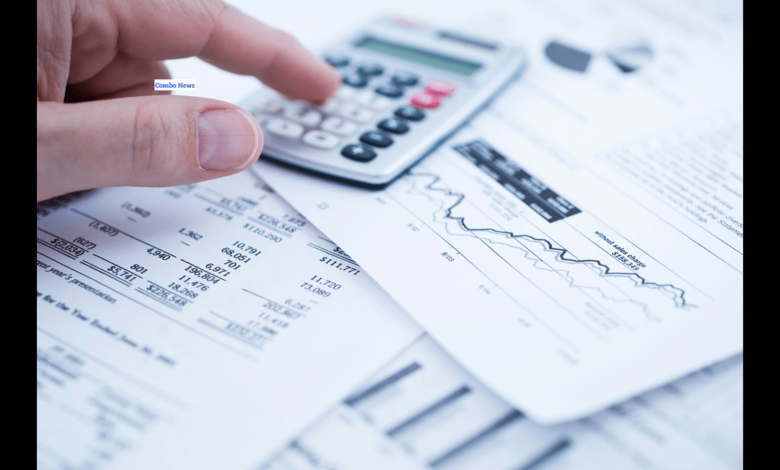Learn How To Prepare Your Finances For A Potential US Debt Default?

The (US Debt) US Treasury Secretary Janet Yellen has sent a letter to House Speaker Kevin McCarthy stating that the US Government may default on its debt as early as June 1 if Congress does not increase or extend the debt ceiling. This occurs after a measure to raise the debt ceiling was approved by the House of Representatives.
The Democratic Party, however, rejects several clauses in the plan that restrict the federal government’s ability to spend money. As a result, it is anticipated that the Senate will vote down the bill, and the President will veto it.
The likelihood of a bipartisan measure to raise or suspend the US debt ceiling in the near future appears to be dwindling, which increases the possibility that the US government will potentially default on its obligations. The impact on each American’s personal finances might be significant if the US government does not make payments for which it is responsible.
A US government debt default might result in a sharp decline in the value of the dollar, inflation, and an increase in interest rates. Higher borrowing rates for people, companies, and the government might come from this, slowing economic development and job creation.
This article’s main goal is to offer advice on how people might set up their finances to prepare for the potential of a US debt default.
Also Read: Us Federal Reserve To Hike Interest Rates To 16-Year Peak Amid Inflation Concerns
Reducing Debt And Repaying High-Cost Debt
Individuals must pay off higher-cost debt and reduce their overall debt if they want to be ready for a possible US debt default. Interest rates might soar in the event of a default, making it more difficult for consumers to manage their debt.
In addition to economic instability and job loss, default may make it more difficult for people to make ends meet. People can increase their financial stability and lessen their exposure to possible economic shocks by paying off debt and repaying higher-cost debt.
To prevent being caught off guard, it is crucial to begin preparing for potential financial dangers as soon as feasible.
Review Insurance Coverage
The correct insurance protection can offer monetary security and avert catastrophic financial losses. For instance, having homeowner’s insurance that protects against damage from natural catastrophes or other unforeseen incidents is essential if you own a property. In the same way, having health insurance can lower the cost of medical bills in the event of unanticipated illnesses or injuries.
Reviewing your life insurance policy is a smart idea as well to make sure that your loved ones are covered financially in the event of your untimely demise. In the event of a sudden incapacity to work due to an illness or injury, disability insurance can restore lost income.
Also Read: Why Bitcoin Is The King Of Cryptocurreny?
Diversifying Investments
In anticipation of a potential US debt default, it is crucial for investors to diversify their holdings since such a scenario might have dire economic repercussions, including a possible decline in the stock market and an increase in interest rates.
Individuals can spread their risk over a variety of asset classes and reduce the impact of a potential default on their total portfolio by diversifying their assets. Investing in a range of equities, bonds, commodities, and alternative assets like real estate or precious metals may be required for this.
Being ready for the unexpected is always a good idea, and diversity is a key tactic for reducing risk in any investing portfolio.
Build An Emergency Fund For Unexpected Expenses
To be ready for a potential US debt default, emergency savings must be built. Financial markets may undergo severe instability in the case of a default, which might result in job losses and economic uncertainty.
Consider putting away a percentage of your monthly pay for savings or adding any additional money, such tax returns or bonuses, to your emergency fund.
You may use an emergency fund to pay for unforeseen costs like medical bills, auto repairs, or lost income.
According to experts, you should have between three and six months’ worth of living costs in your emergency fund. Having a cash reserve can help you weather any potential financial storms in the case of a debt default.
Also Read: Us Law Agencies Seize $112 Million Worth Of Crypto In Recent Crackdown
Investing In Foreign Assets
To lessen the possible effects of a US debt default, investing in overseas assets might be a smart move. You may lessen your exposure to potential adverse consequences of a US debt default on the dollar and US markets by diversifying your portfolio to include assets denominated in other currencies.
Additionally, diversifying your overall investment portfolio and gaining access to new growth opportunities can both be accomplished by investing in foreign assets. To establish a tailored plan, it’s crucial to understand the dangers and possible volatility involved with international investments and to speak with a financial advisor.
Family Budgeting And Reducing Expenses
A family budget is essential for handling money and cutting back on wasteful spending. It is much more crucial to make a realistic budget that accounts for necessary costs and eliminates non-essential expenditure in advance of a probable US debt default.
By reducing spending, families may save money, create emergency reserves, and be better equipped to handle any financial difficulties that may develop as a result of a debt default.
In conclusion, even while the prospect of a US debt default can sound intimidating, there are things you can do to get your finances in order. These consist of diversifying your investment portfolio, eliminating high-interest debt, and setting aside money for emergencies. You can shield yourself against the possible effects of a US debt default by adopting these actions.
FAQs
What if the US defaults on its debt?
An economic slump that results in a rise in unemployment might be brought on by a debt default. The nation would be coping with rising interest rates and persistently high inflation at the time, which is a particularly vulnerable one.
What is the safest place for money if the government defaults?
Due to the fact that the United States has never experienced a debt default, U.S. government assets, such as Treasury notes, bills, and bonds, have long been regarded as being very secure. While it varies depending on how long the security is outstanding, Treasury securities, like CDs, typically pay interest at higher rates than savings accounts do.
Who does the US owe the most money to?
The two biggest foreign holders of US debt during the past 20 years have been Japan and China. Between 2004 and 2006, nearly 50% of all foreign holdings of US debt came from China and Japan. However, this has decreased over time, and as of 2022, they were in control of about 25% of the foreign debt.
Also Read: Can Blockchain Networks Be Automated?








